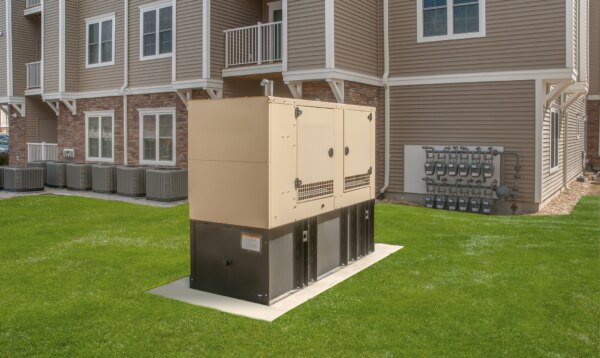
What’s Up with Wet Stacking?
by John Reed, Technical Consultant
May 8, 2024
“Wet stacking” can be a common problem with diesel generators that affects more than just engine performance; it can also impact claims for insureds that use these sources of energy. This issue manifests when a diesel generator continuously runs at power loads lower than what the unit is rated for, which causes unburned fuel to build up in the generator’s engine and exhaust system. Wet stacking has a wide range of effects on a company’s finances and operations, which in turn may have an impact on insurance claims involving diesel generators.
Factors including underloading, in which the generator runs at a quarter or lower of its rated capacity, can lead to a condition known as wet stacking. Additional factors, such as short run times and operation in freezing temperatures, can also contribute to inefficient operations. When a generator runs at less-than-ideal power loads on a regular basis, it doesn’t become hot enough to burn fuel completely, which causes carbon and soot deposits to accumulate.
Wet stacking can reduce the efficiency of a diesel generator and even cause a generator to fail when your insured may need it the most. Failure of standby generators can cause servers to go down, communication systems to be disrupted, and even food product loss due to a lack of refrigeration, all of which can result in property and business interruption claims. wet stacking can be reduced with routine maintenance and operating procedures that guarantee generators run close to their rated load levels. Regular “Load Banking” at ideal power loads helps in burning off built-up deposits, preserving engine performance, and lowering the risk of failures.
We note that older model and mobile generator systems may not have programmed periodic maintenance, wherein they will automatically run periodically under close to their rated power load.
Carriers may assess their claims in a different way depending on the insured’s preventive actions. Your insured may be able to support their claim relating to generator failure or any operational downtime if they are able to show a dedication to good generator maintenance and operating procedures per the generator manufacturer’s recommended preventative maintenance schedules.
To reduce the impact of wet stacking, and protect against monetary losses, industries relying on standby power from generator power sources should make preventive maintenance a priority. When it comes to your diesel generator claims for catastrophic mechanical failure, our experts can review maintenance records and/or conduct interviews with the insured’s contractors to pinpoint wet stacking issues and how they can relate to your claim.
Please contact John Reed, LSG Technical Consultant with questions or to discuss claims involving Generator Systems at 866.899.8756 ext. 743 or jreed@losssolutionsgroup.com.

